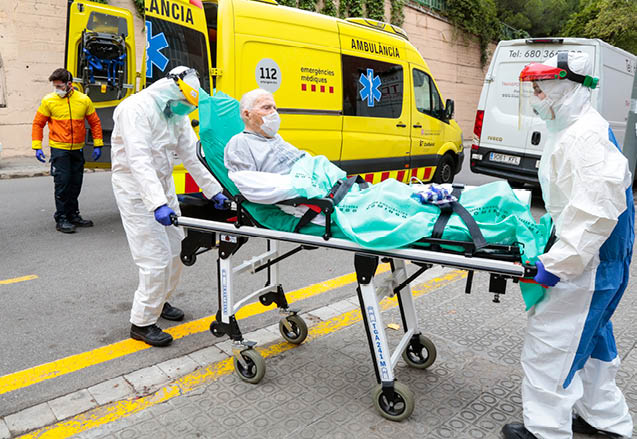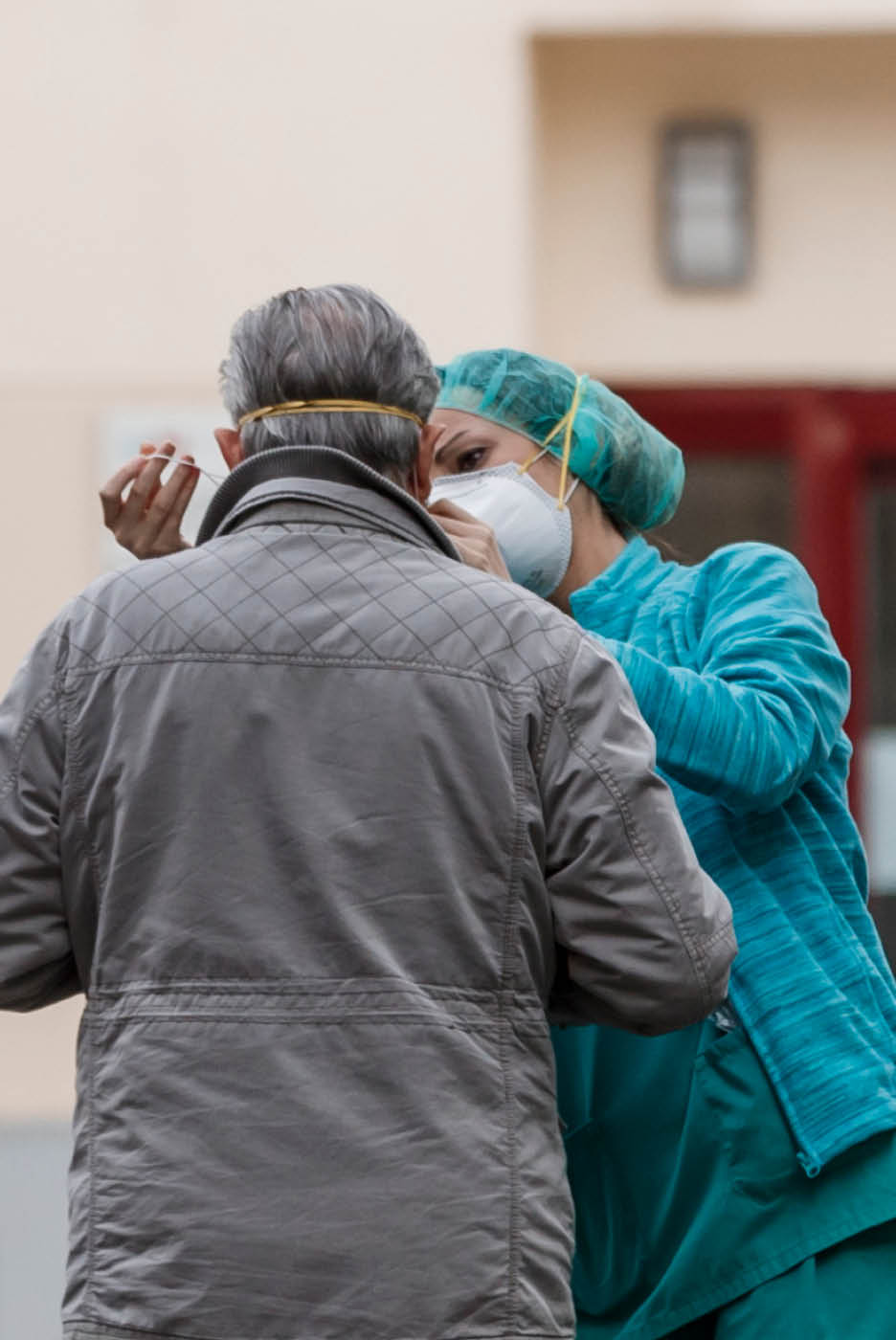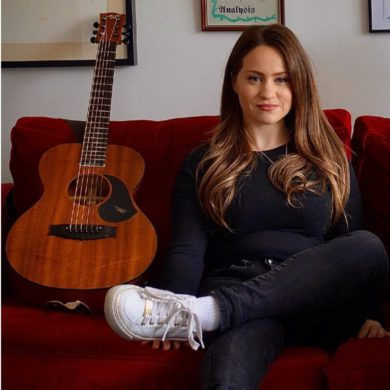At the beginning of this month, an aged-care worker turned up to work at Newmarch House nursing home in western Sydney with what seemed like a common cold. Just a bit of a sore throat – nothing bad enough to report to her manager, let alone a fever that might have indicated something more sinister.
She worked six shifts at Newmarch House that week and two more at Greystanes Disability Services in Leura, about 50 kilometres away. At the end of her last shift, she asked for a bit of time off. A few days later, the nurse tested positive for coronavirus.
In what has become one of the worst clusters of Covid-19 cases so far, five Newmarch patients have died and 44 more residents and staff have tested positive.
The remaining residents are locked down, cared for by staff in full PPE, many of them knowing that they’re “playing Russian roulette” – as one worried family member of a resident put it – with a virus that claims disproportionate numbers of elderly people. Understandably, the aged-care worker who unknowingly infected her workplace is said to be “mortified” and “incredibly distraught”, but among other aged-care workers her situation attracts enormous sympathy.
“We have 15,000 members working in home care and residential aged care across Australia,” says Carolyn Smith, National Director of Aged Care for the United Workers Union. “They’re the care workers, the cleaners, the cooks – 80 per cent of the people you see when you walk into a home. Our members look at the terrible situation in Sydney and say, ‘That could have been me’.”
The aged-care worker is said to be “distraught”
Aged-care work isn’t high-profile or glamorous – while sexy hospital dramas account for thousands of hours of TV, producers aren’t queuing up to make shows about life on a dementia ward. In fact, unless you work in the sector or have a relative in a nursing home, aged care is the type of under-the-radar profession that rarely receives much attention.
That’s changed since aged-care workers have joined doctors, nurses and other health staff on the front line of the fight against coronavirus.
Suddenly, they find themselves at the epicentre of the pandemic. In Europe, it was revealed this week that half of all deaths due to coronavirus were nursing-home residents, making aged care workers among those most likely to be exposed to the virus.
On top of concerns for their own health, aged-care workers are now fearful of unintentionally spreading the virus – and causing the deaths of elderly people they may have looked after for many years. Every morning they’re questioning whether the tiniest tickle in their throat could be the first symptom of Covid-19. And if there is an outbreak at their workplace, they know they’re expected to show up to work, because some of the most vulnerable people in society depend on them.
The problem is that aged care offers few of the benefits or protections of other, higher-profile health sectors.

Pay is low – the average salary for an aged-care worker ranges from $30-$45,000 a year, says Smith. (Registered nurses might expect to earn $65-$80,000 a year.) Because of the way shifts are rostered, to cover busier times of day like breakfast and dinner, many aged-care workers have two jobs, performing shifts at different homes.
What’s more, unlike other industries, such as childcare, there are no staff-to-patient ratios, which means aged-care workers are often over-stretched. “I’ve heard of one aged-care worker being the sole person responsible for a 30-bed ward overnight,” Smith adds.
Even before the pandemic, there were concerns about the sector. A Royal Commission interim report into aged care – titled ‘Neglect’ – contained several damning findings, including that its workforce was “under pressure and under-appreciated.”
There’s little doubt that working in aged-care can be physically and emotionally taxing. There are the physical tasks that need to be performed for patients, such as bathing and washing, cooking and assistance with simply getting around. But it’s also a job that exacts an emotional toll, as workers build up a relationship with the people who care for them. “You’re more than just a carer,” says Micharla Thompson, a care worker for Just Better Care in Melbourne. “You’re their confidante, and while you don’t quite become like family, they are very vulnerable and place a lot of trust in you.”
Working in aged care can be physically and emotionally taxing
Since lockdown measures began, those vulnerable clients have relied on their carers even more, as many residential homes have banned all visitors, prompting Prime Minister Scott Morrison this week to threaten he would intervene to force facilities to open up again.
Smith says more than 50 per cent of aged-care residents don’t receive any visitors normally; now, even those than do usually enjoy visits from friends and family find themselves in reduced contact with the outside world.
“We’re doing a lot of Zoom calls – their faces light up like you wouldn’t believe when they see their families,” says aged care worker Susie Jones*. “Or we’ll arrange for their families to come to the other side of the glass door at the entrance and they talk to each other on a mobile phone. One woman couldn’t stop crying when she saw her new great-grandchild on the other side of the door.”
Those patients who understand the potential consequences of the crisis have been frightened, Jones adds. Every staff member has their temperature tested at the start of their shift, along with anyone else who needs to enter the home. Even so, as proved by the situation at Newmarch House, infections can occur – and when they do, the consequences are devastating.
“As soon as Covid gets into a nursing home, you have to expect there will be deaths because people are so vulnerable,” says Smith.
Fifty per cent of residents don’t receive any visitors
Although Australia has a low mortality rate so far, other countries have fared far worse. In England, for example, over 3000 care homes have recorded outbreaks of coronavirus and, while there are no official government figures so far, industry bodies estimate there have been between 4,000 and 7,500 deaths.
Following the Newmarch outbreak, residential care home staff have been encouraged to stay home if they experience even the slightest respiratory symptoms.
But staying home is a problem if you don’t receive sick pay.
This is one of the one of the key issues to emerge during the Covid crisis. Casual workers aren’t entitled to paid sick leave; those employees who do receive sick leave are worried about using it up too quickly.
As Smith points out, “imagine how many times in a month you wake up feeling a bit woozy. [These workers] are starting to run down their sick leave at a massive rate and they’re low-paid workers to begin with, and now, often, they’re the only income in their family. They are thinking, I don’t want to be the person who goes to work with symptoms, but if I run out of sick leave what do I do?”
Some providers are giving staff extra sick leave, but some are saying they can’t afford to do that, says Smith. Anglicare, which runs Newmarch House, has offered additional sick leave to all staff required to self-isolate.
But Newmarch House has still struggled to meet its staffing needs, with CEO Grant Millard reporting that 55 staff were self-isolating. Those who do attend work are wearing full PPE and performing additional hygiene measures. “It takes five times as long for workers to deliver care,” says Chris Pettett, public affairs manager. “That’s why we’ve been working with the government to ensure residents’ care needs are met.”
Programmes are in place, he adds, to give psychological support to those members of staff who need help.
When Thompson feels she needs support, she calls her boss to debrief. “There’s also a number I can call through work if I need to talk,” she says.
Despite the challenges, Thompson says she loves her job. “I’ve done a lot of different roles in my life, and now I feel I’ve found something where I feel like I’m actually making a difference and helping people.”
*Name has been changed














No Comments